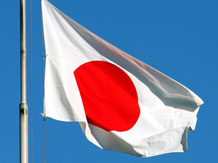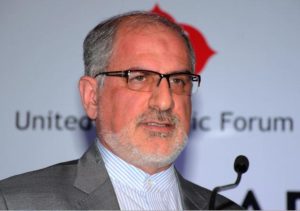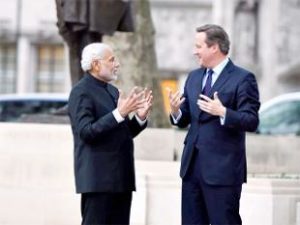 As exports fell for the 11th month in a row in October 2015, the government on Monday increased the refunds to exporters on duties on imports, particularly those relating to engineering products. This would also neutralise the impact of import duty hike in steel, used in engineering products.
As exports fell for the 11th month in a row in October 2015, the government on Monday increased the refunds to exporters on duties on imports, particularly those relating to engineering products. This would also neutralise the impact of import duty hike in steel, used in engineering products.
Besides engineering goods, the government raised the duty drawback rates on composite products such as leather handbags, ready-made garments made of cotton wool and those made of cotton with lycra.
The Central Board of Excise and Customs raised the duty drawback rate by two percentage points for the engineering sector, which would allow higher tax refund to exporters of machinery and appliances, electrical machinery, tools and implements, among others.
“These revised rates are based on average incidence of customs and central excise duties and service tax related with the manufacture of export goods and involve substantial total drawback for exporters,” the government said in a release.
After the additional hike in the duty drawback, the rate for certain engineering products could go up to close to eight per cent, sources said.
However, the government did not take into the account the 20 per cent safeguard duty imposed on hot-rolled steel. “It is a positive that the government has made up for the hike in duty on steel. But the smaller firms will have to bear the impact of safeguard duty, as it is not factored in new duty drawback announced ” said Ajay Sahai, director-general and CEO, Federation of Indian Export Organisations.
CRUX OF THE MATTER
- Move expected to neutralise impact of import duty hike in steel
- Duty drawback rates raised on engineering goods, leather handbags, readymade garments made of cotton wool and cotton with lycra, shrimps
- Two percentage points rise in duty drawback for engineering sector to allow higher tax refund to exporters of machinery and appliances, electrical machinery, tools among others
- Former CMD N Ramanujan had worked out a JV with Titan Watches when Xerxes Desai was heading it. But the government turned it down
- The only operational plant at Tumkur, Karnataka, has 2 million-unit capacity of quartz watches
- The watch model, Kanchan, used to sell at a premium in the grey market at Rs 1,000, when its legal price was Rs 700
Duty drawback is a refund of certain types of customs and Central excise duties as well as service tax on imports of inputs or raw materials that are used to manufacture goods for exports.
The revised rates of duty drawback notified by the finance ministry will be effective from November 23.
In a first, the government extended the brand rate of duty drawback to wheat. It also provided a mechanism to pay provisional drawback to exporters soon after export, for certain exports made under the claim for brand rate of duty drawback.
“This was pending for a long time. In a positive development, the government also allowed exporters claiming brand rate of drawback rate to avail provisional drawback rate until the brand rate is decided,” said Sahai.
The government added the expert committee would look into exporters’ concerns arising from new schedule of rates and make further recommendations to the government in January 2016. The government will also take into account feedback from export promotion councils to this effect.
Source:





